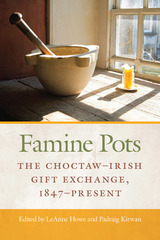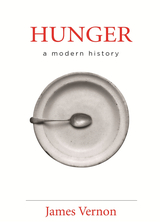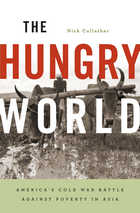
As budgetary concerns have come to dominate Congressional action, the design and implementation of welfare programs have come under greater scrutiny. This book focuses on the food stamp program to examine how the growing integration of welfare and budgeting has affected both politics and people.
Applying insightful analysis to this important policy topic, Ronald F. King looks at the effects on welfare transfers of the kinds of budgetary rules adopted by Congress: discretion, entitlement, and expenditure caps. King uses models based on these forms to interpret the events in the history of the food stamp program up to the welfare reform of 1996, and he shows how these different budget rules have affected political strategies among key actors and policy outcomes.
King analyzes tensions in the program between budgetary concerns and entitlement, revealing that budget mechanisms which seek to cap the growth of entitlement spending have perverse but predictable effects. He also explores the broader conflict between procedural and substantive justice, which pits inclusive democratic decision-making against special protections for the needy and vulnerable in society.
The food stamp program offers a valuable opportunity for studying the influence of shifting institutional factors. In an era when budgetary anxieties coexist with continuing poverty, King's book sheds new light on the increasing fiscalization of welfare in America.



Famine Relief in Warlord China is a reexamination of disaster responses during the greatest ecological crisis of the pre-Nationalist Chinese republic. In 1920–1921, drought and ensuing famine devastated more than 300 counties in five northern provinces, leading to some 500,000 deaths. Long credited to international intervention, the relief effort, Pierre Fuller shows, actually began from within Chinese social circles. Indigenous action from the household to the national level, modeled after Qing-era relief protocol, sustained the lives of millions of the destitute in Beijing, in the surrounding districts of Zhili (Hebei) Province, and along the migrant and refugee trail in Manchuria, all before joint foreign-Chinese international relief groups became a force of any significance.
Using district gazetteers, stele inscriptions, and the era’s vibrant Chinese press, Fuller reveals how a hybrid civic sphere of military authorities working with the public mobilized aid and coordinated migrant movement within stricken communities and across military domains. Ultimately, the book’s spotlight on disaster governance in northern China in 1920 offers new insights into the social landscape just before the region’s descent, over the next decade, into incessant warfare, political struggle, and finally the normalization of disaster itself.

Hunger is as old as history itself. Indeed, it appears to be a timeless and inescapable biological condition. And yet perceptions of hunger and of the hungry have changed over time and differed from place to place. Hunger has a history, which can now be told.
At the beginning of the nineteenth century, hunger was viewed as an unavoidable natural phenomenon or as the fault of its lazy and morally flawed victims. By the middle of the twentieth century, a new understanding of hunger had taken root. Across the British Empire and beyond, humanitarian groups, political activists, social reformers, and nutritional scientists established that the hungry were innocent victims of political and economic forces outside their control. Hunger was now seen as a global social problem requiring government intervention in the form of welfare to aid the hungry at home and abroad. James Vernon captures this momentous shift as it occurred in imperial Britain over the past two centuries.
Rigorously researched, Hunger: A Modern History draws together social, cultural, and political history in a novel way, to show us how we came to have a moral, political, and social responsibility toward the hungry. Vernon forcefully reminds us how many perished from hunger in the empire and reveals how their history was intricately connected with the precarious achievements of the welfare state in Britain, as well as with the development of international institutions, such as the United Nations, committed to the conquest of world hunger. All those moved by the plight of the hungry will want to read this compelling book.

Food was a critical front in the Cold War battle for Asia. “Where Communism goes, hunger follows” was the slogan of American nation builders who fanned out into the countryside to divert rivers, remodel villages, and introduce tractors, chemicals, and genes to multiply the crops consumed by millions. This “green revolution” has been credited with averting Malthusian famines, saving billions of lives, and jump-starting Asia’s economic revival. Bono and Bill Gates hail it as a model for revitalizing Africa’s economy. But this tale of science triumphant conceals a half century of political struggle from the Afghan highlands to the rice paddies of the Mekong Delta, a campaign to transform rural societies by changing the way people eat and grow food.
The ambition to lead Asia into an age of plenty grew alongside development theories that targeted hunger as a root cause of war. Scientific agriculture was an instrument for molding peasants into citizens with modern attitudes, loyalties, and reproductive habits. But food policies were as contested then as they are today. While Kennedy and Johnson envisioned Kansas-style agribusiness guarded by strategic hamlets, Indira Gandhi, Marcos, and Suharto inscribed their own visions of progress onto the land.
Out of this campaign, the costliest and most sustained effort for development ever undertaken, emerged the struggles for resources and identity that define the region today. As Obama revives the lost arts of Keynesianism and counter-insurgency, the history of these colossal projects reveals bitter and important lessons for today’s missions to feed a hungry world.
READERS
Browse our collection.
PUBLISHERS
See BiblioVault's publisher services.
STUDENT SERVICES
Files for college accessibility offices.
UChicago Accessibility Resources
home | accessibility | search | about | contact us
BiblioVault ® 2001 - 2024
The University of Chicago Press









